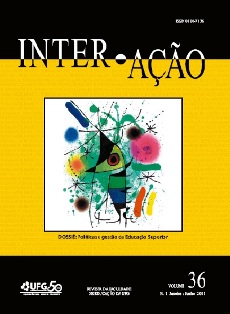EXPECTATIONS OF YOUNG RURAL WORKERS IN UNIVERSITY : THE CHALLENGES OF THIRD LEVEL FORMATION
DOI:
https://doi.org/10.5216/ia.v36i1.15040Abstract
This study seeks to analyze the experience of young rural workers joining a public university, based on a pioneering experiment deployed at the Universidade Federal de Minas Gerais, which offers a regular licentiate course in rural education as part of the Brazilian Federal University Expansion and Restructuring Plan. It can be said that these young people managed to overcome the difficulties imposed by their situation as poor, young, rural workers. If the so-called ‘affirmative’ policies were decisive for this ‘global transfer of distance’ (Bourdieu, 1998), it remains to be seen how this experience has been lived out and what mechanisms can be put into practice to guarantee the permanence of these people in spaces once well-demarcated.Downloads
Downloads
Published
How to Cite
Issue
Section
License
Inter-Ação uses the Creative Commons Attribution 4.0 License for Open Access Journals (Open Archives Initiative - OAI) as the basis for the transfer of rights. Open access means making documents available on the Internet free of charge, so that users can read, download, copy, distribute, print, search, or link to the full text of documents, process them for indexing, use them as input data for software programs, or use them for any other lawful purpose, without financial, legal, or technical barriers.
Authors publishing in this journal agree to the following conditions:
1) Authors retain copyright and grant the journal the right of first publication, with the work simultaneously licensed under the Creative Commons Attribution License, which permits redistribution of the work with attribution and first publication in this journal.
2) Authors are permitted to enter into additional, separate agreements for non-exclusive distribution of the version of the work published in this journal (e.g., for publication in an institutional repository or as a book chapter), with attribution and first publication in this journal.
3) Authors are permitted and encouraged to publish and distribute their work online (e.g. in institutional repositories or on their home page) at any time before or during the editorial process, as this may generate productive changes as well as increase the impact and citation of the published work.















